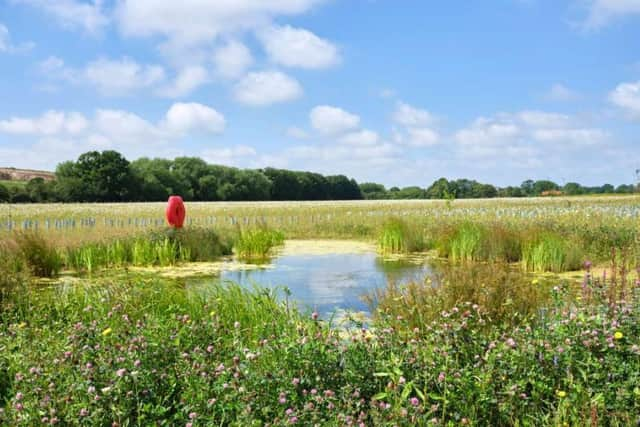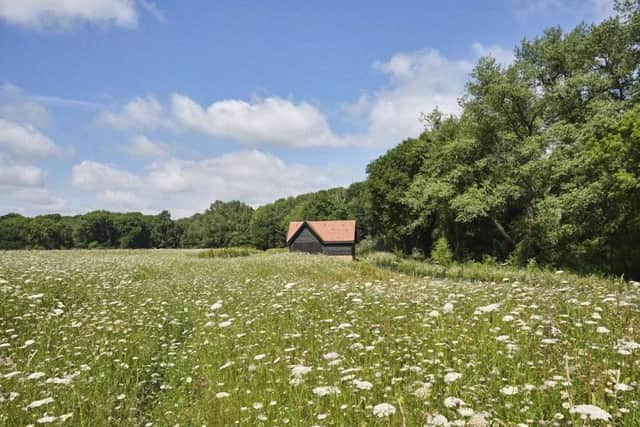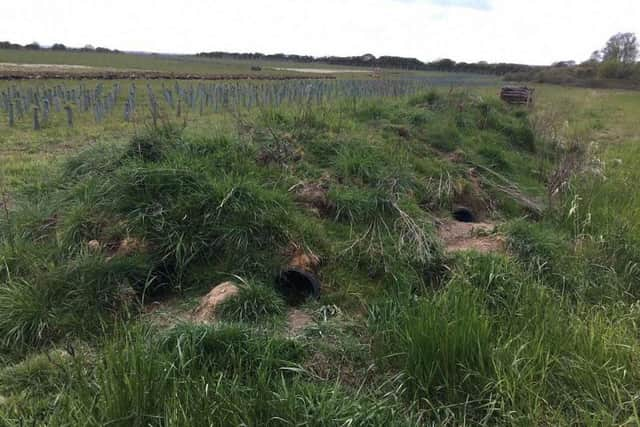New East West Rail project in Milton Keynes includes homes for badgers, bats and newts
and live on Freeview channel 276
The new East West Rail line is already proving a real hit - with badgers, bats, newts and otters.
For the workers building the line had to commit not only replacing, but enhancing, the wildlife habitat that was destroyed during the construction work.
Advertisement
Advertisement
Builders working on behalf of Network Rail and the East West Rail Alliance have so far built 27 artificial badger setts, a special bat house, two artificial otter holts and several ponds along the route, which runs between Oxford, Bletchley, and Milton Keynes.


And already 100% of the artificial badger setts have been occupied by badgers, with 22% of them used for breeding.
The purpose-built bat house is being well used by roosting bats, with at least seven species of bats commuting and feeding in them.
Meanwhile 100% of the ponds created for great crested newts show signs they are living there, and one of the two artificial otter holts is regularly being used.
Advertisement
Advertisement
The workers have also planted more 150,000 trees to provide wildlife habitats in the future.


A planning condition in the Transport and Works Act Order stipulated that the construction of the line should deliver a 10% net gain in biodiversity.
In a first for a major rail project, the companies vowed that any habitats disrupted during construction should be restored, and an additional 10% should be created.
Ian Parker, EWR Co programme delivery director, said: “Protecting the environment is at the centre of everything we do, and a fundamental part of our decision-making. We’ll build on the great work that’s already underway on delivering biodiversity net gain for the section of railway between Bicester and Bletchley/Milton Keynes, and continue to work closely with local community groups, environmental bodies and local highway and planning authorities to keep a sharp focus on priority habitats and the natural environment as we continue with our designs for the whole railway.”
Advertisement
Advertisement
Mark Cuzner, East West Rail Alliance project director, said: “We’ve been committed to having the smallest ecological impact possible while building this exciting new railway which will one day link Cambridge and Oxford from East to West.


He added: “As this phase of East West Rail is being built in the main on mothballed railway lines which had become important wildlife corridors, we had to think sensitively and carefully about how we could protect species which had made their home on the former railway lines.
"That’s why we made a railway first commitment to put back 10% more habitat as part of the project, and it’s really encouraging to see how this is already paying off for biodiversity along the route.”